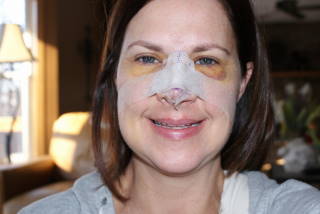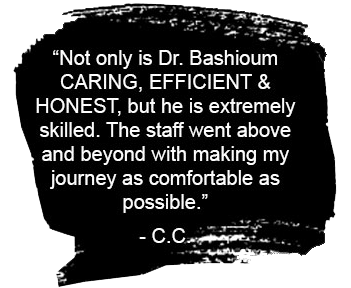Radical Body Modification: Cat Man
October 9th, 2013
Now that tattoos are no longer shocking and seem to be on track to be commonplace in mainstream pop culture, some people are upping the ante. I was recently interviewed on KARE-11 TV about the trend of Ear Gaging. The latest trends in radical body modification probably appeal to people wanting to push the limits. Dennis Avner, typifies this extreme and is the Nevada man who spent years trying to look like a cat (pictured here). Avner underwent a series of radical body modification procedures to transform his body into a female cat.
Avner’s operations have included bifurcation (splitting) of his upper lip, surgically pointing his ears, silicone cheek and forehead implants, tooth filing, tattoos, multiple facial piercings, getting whiskers implanted and making a mechanical tail. It is unclear whether Avner was ever evaluated for any mental disorders, but the extreme nature of his transformation may have suggested problems. He died at the age of 54 by an apparent suicide.
His surgeries were done by Steve Haworth from Phoenix, Arizona, an artist and pioneer of body modification techniques. Steve Haworth is responsible for the invention and popularization of subdermal and transdermal implants. Haworth is the subject of the 2007 documentary Flesh & Blood by director Larry Silverman. The industry is largely unregulated and although surgical techniques are often used to accomplish this fringe body modification, people seeking procedures are deemed clients, rather than patients.
In spite of hazards due to these procedures being done outside the medical community, the trend remains a popular sub-culture. Body modifications are often difficult to reverse and sometimes require several expensive plastic reconstructive surgeries to accomplish returning to a former appearance. While I admit that cosmetic surgery does fall into the category of body modification, I would recommend caution when proceeding with any radical forms body modification.
Photo: Courtesy Belle News
Nose Job Gains Popularity
July 31st, 2013
 Patients frequently bring in pictures saying, I want my nose to look like this. Several factors dictate whether this request represents realistic expectations or not. It is important to understand the possibilities and limitations presented by the anatomy of a particular nose, the aesthetics of the individual facial structure and desires of the patient. I like to be honest with my patients and explain how much of a change is possible in their particular case. While every nose surgery is personally customized, existing anatomy and facial proportions play an important role in sculpting and reshaping a new nose.
Patients frequently bring in pictures saying, I want my nose to look like this. Several factors dictate whether this request represents realistic expectations or not. It is important to understand the possibilities and limitations presented by the anatomy of a particular nose, the aesthetics of the individual facial structure and desires of the patient. I like to be honest with my patients and explain how much of a change is possible in their particular case. While every nose surgery is personally customized, existing anatomy and facial proportions play an important role in sculpting and reshaping a new nose.
Modern rhinoplasty philosophy and techniques do give us a vast number of combinations with regards to nose surgery. We are able to either increase or decrease the size of any part of your nose. Sculpting a new nose is equal parts anatomy and artistry. For example, a surgeon might increase the height of the bridge of the nose, while decreasing the width of the tip to achieve a particularly desired result. I design each surgical plan to be customized for my patients with these aspects in mind. The skill of the surgeon is an important consideration in choosing a plastic surgeon. I find that Before and After photos are helpful for patients to get a sense of my cosmetic surgery aesthetic.
To read more about having nose surgery, Lisa’s Blog is a patient diary, including her AFTER photo following her own nipntuck experience. For more of Lisa’s story (including actual surgery footage) search for Lisa’s Blog in our Search feature.
